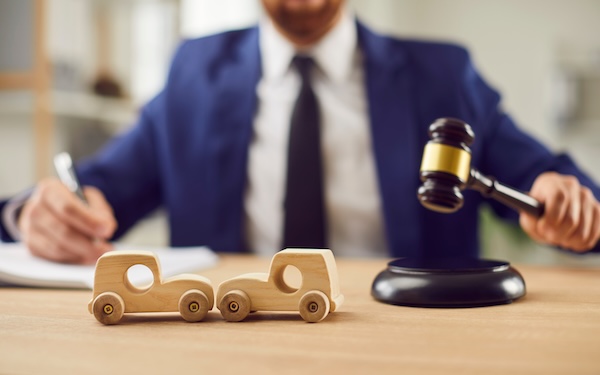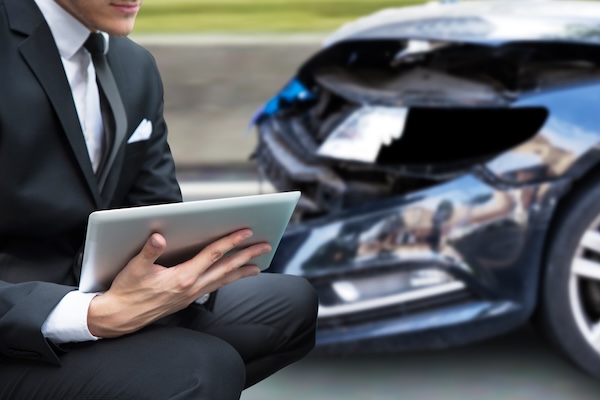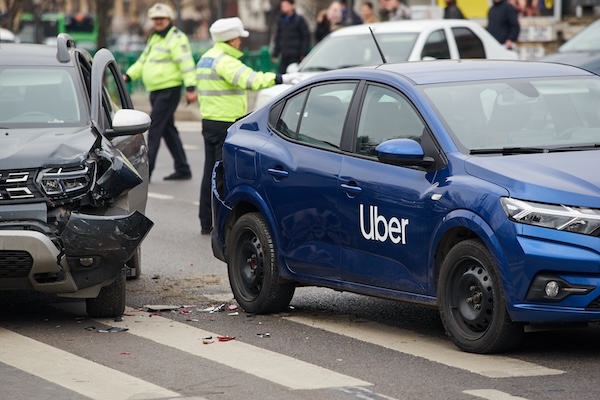Injured in an Uber or Lyft crash in Atlanta? Speak with a Georgia-licensed rideshare accident lawyer now. We know Uber/Lyft insurance, app-status coverage, and how to maximize recovery. Free, 24/7 case review. No fee unless we win. Call or click for a fast case assessment—before you speak to an insurer.
Get Your Free Case Review Today
No fees unless we win your case. Call now or fill out our form for a free consultation with an experienced rideshare accident attorney.
What to Do Right After an Uber or Lyft Crash in Atlanta (APD/GSP + In‑App Reporting)
- Call 911 and get a medical evaluation
- Photograph vehicles, scene, and injuries; capture dashcam if available
- Get witness names/phone numbers
- Report in the Uber/Lyft app; save trip/driver screenshots
- Do not give recorded statements to insurers before speaking to a lawyer
Move to safety, call 911, and get a medical evaluation
Your health comes first. Move to safety if possible and call 911 right away. Even if you feel fine, get checked by paramedics. Some injuries don’t show symptoms immediately. Getting medical help creates important records for your insurance claim too.
Document the scene: photos, dashcam, and witnesses
Take photos of all vehicles, injuries, road conditions, and traffic signs. Get dashcam video if available. Collect names and numbers from witnesses. This evidence can prove negligence and support your damages claim later.
Get your APD/GSP Georgia Uniform Crash Report (BuyCrash/eCrash)
Always get a police report. Whether it’s from the Atlanta Police Department or Georgia State Patrol, this Georgia Uniform Motor Vehicle Accident Report becomes crucial evidence. You can get your Atlanta Police Department crash report or Georgia State Patrol crash report online through BuyCrash/eCrash.
Report in the Uber/Lyft app and save trip screenshots
Report the accident through the app immediately. Take screenshots of your trip details, route, and driver information. This preserves key data about app status periods and helps establish liability under Georgia TNC insurance requirements (O.C.G.A. § 33-1-24).
Call an Atlanta Uber accident lawyer before speaking to insurers
Call a Lyft accident lawyer before giving any statements to insurance companies. Adjusters may try to minimize your claim. Let your attorney handle communications to protect your rights under Georgia personal injury law.
Who We Represent in Rideshare Accidents (Passengers, Drivers, Pedestrians, Cyclists)
Injured passengers in Uber or Lyft
Passengers hurt during rideshare trips have strong claims. The Transportation Network Company provides coverage when you’re in the vehicle, with Uber’s $1,000,000 third-party liability coverage applying during trips.
Other drivers and occupants hit by a rideshare vehicle
If an Uber or Lyft driver hit you, you can seek compensation for medical bills, lost wages, and emotional distress. The rideshare company’s insurance applies based on the driver’s app status at the time.
Pedestrians and cyclists struck by Uber/Lyft
Pedestrians and cyclists have the same rights to compensation. These cases often involve serious injuries requiring extensive medical care and rehabilitation.
Uber/Lyft drivers injured by negligent motorists
Rideshare drivers hurt by other motorists can pursue claims too. We help drivers navigate both personal and commercial insurance coverage issues while avoiding deactivation problems.
Common Causes of Atlanta Rideshare Crashes (O.C.G.A. § 40-6-241 Hands‑Free, Speeding, Fatigue)
Distracted driving and cell phone use (Georgia Hands-Free Law)
The Georgia Hands-Free Law (O.C.G.A. § 40-6-241) prohibits holding phones while driving. Rideshare drivers checking apps or GPS violate this law, and violating § 40-6-241 can support negligence per se in your claim, creating clear breach of duty for negligence claims.
Speeding and aggressive driving on the Downtown Connector (I-75/85) and I-285
Atlanta’s highways see frequent rideshare accidents. Drivers rushing between trips or trying to maximize earnings may speed or drive aggressively, violating their duty of care to passengers and other motorists.
Fatigue from long shifts and multi-app driving
Many drivers work long hours across multiple apps. Fatigue increases accident risk and can establish negligence in your claim.
Unsafe pickups/drop-offs near Hartsfield-Jackson ATL and busy corridors
Sudden stops in traffic lanes or unsafe merging during pickups cause many accidents. These dangerous maneuvers in Midtown, Buckhead, and Downtown Atlanta create liability for resulting crashes. Hartsfield-Jackson ATL pickups present unique hazards.
Impaired or drunk driving and potential punitive damages
DUI rideshare accidents may qualify for punitive damages under Georgia law (O.C.G.A. § 51-12-5.1). These cases involve serious breach of duty and often result in catastrophic injuries.
How an Atlanta Rideshare Attorney Helps (Liability, Evidence, Medical, Negotiation)
Free case evaluation, liability analysis, and claim strategy
We review your case free of charge, analyzing liability under Georgia comparative negligence rules (O.C.G.A. § 51-12-33). Our strategy considers all insurance coverage available and potential defendants. We file your insurance claim and prepare demand letters to maximize recovery.
Protecting your claim: handling adjusters and recorded statements
Insurance companies want to minimize payouts. We handle all communications, protecting you from tactics that could reduce your compensation under Georgia’s comparative fault system.
Coordinating medical care, records, billing, and lien resolution
We help coordinate your medical treatment and gather records to support your damages. We also negotiate hospital liens (O.C.G.A. § 44-14-470) and health insurance subrogation/ERISA liens to maximize your net recovery.
Preserving app data, trip logs, phone records, and telematics
Critical evidence disappears quickly. We send spoliation letters for evidence preservation, securing EDR/black box information, app records, and other key proof.
Negotiation, litigation, arbitration, and trial representation
From settlement negotiation through trial, we represent you at every stage. We’re prepared to fight arbitration clauses in rideshare terms of service when necessary.
Georgia Liability and Comparative Fault (O.C.G.A. § 51-12-33)
Duty of care, breach, causation, and damages
Every driver owes a duty of care to others on the road. When rideshare drivers breach this duty through negligent acts, causing your injuries, they’re liable for resulting damages.
Potentially liable parties
Multiple parties may share liability: the rideshare driver, other motorists, companies responsible for road hazards, or even the Georgia Department of Transportation (GDOT) for dangerous road conditions.
Comparative fault in Georgia and how it impacts recovery
Under Georgia comparative negligence law (O.C.G.A. § 51-12-33), your compensation reduces by your percentage of fault. If you’re 20% at fault, you recover 80% of damages. However, if you’re 50% or more at fault, recovery is barred completely. We fight blame-shifting tactics to maximize your recovery and keep your fault percentage below the 50% bar.
Can you sue Uber or Lyft directly?
While drivers are independent contractors, you may have claims against Uber or Lyft for negligent hiring or retention. These cases require proving the company knew or should have known about driver issues.
DUI, texting, and reckless driving: punitive damages exposure
Extreme misconduct may warrant punitive damages (O.C.G.A. § 51-12-5.1). These damages punish wrongdoers and deter future bad behavior, significantly increasing case value.
Don’t Wait – Time Limits Apply
Georgia’s statute of limitations (O.C.G.A. § 9-3-33) gives you limited time to file your claim. Contact us today for your free consultation.
Uber/Lyft Insurance by App Status (O.C.G.A. § 33-1-24; $1M Coverage on Trip)
Period 0-3 coverage and how it interacts with personal auto policies
Insurance coverage depends on the driver’s app status under Georgia TNC insurance requirements (O.C.G.A. § 33-1-24):
- Period 0 (offline): personal policy only
- Period 1 (app on/waiting): TNC contingent liability (e.g., 50/100/25)
- Period 2-3 (en route/on trip): up to $1,000,000 third‑party liability; UM/UIM may apply
Personal auto policies often exclude rideshare driving. The interaction between policies can be complex, requiring experienced legal guidance to maximize coverage.
Uber/Lyft policy limits
When on an active trip, Uber $1,000,000 coverage and Lyft provide up to $1,000,000 in liability coverage. This covers passenger injuries and third-party claims during rides.
UM/UIM and hit‑and‑run claims
If the at-fault driver lacks adequate insurance or flees, uninsured/underinsured motorist (UM/UIM) coverage may apply. We pursue all available coverage sources for your injuries.
MedPay and health insurance coordination
Medical payments coverage (MedPay) provides immediate funds for treatment. We coordinate MedPay with health insurance and address ERISA/Medicare/Medicaid subrogation rules to minimize out-of-pocket costs while preserving your settlement.
Evidence to Preserve (EDR/Telematics, Phone Records, Spoliation Letters)
Official reports and footage
Police reports provide official accident documentation. Body camera footage and traffic cameras offer additional proof of what happened.
Digital evidence from apps and devices
Trip data, timestamps, and in-app communications prove crucial facts. Phone records can show distracted driving violations of the Georgia Hands-Free Law. EDR/black box data and telematics information are preserved through spoliation letters.
Physical and technical evidence
Vehicle damage photos, dashcam video, and telematics information help accident reconstruction experts determine fault and prove your case.
Witness testimony and expert analysis
Expert witnesses provide crucial testimony about causation, damages, and standard of care violations. Their opinions carry significant weight in settlement negotiations and trials.
Damages You Can Recover (Medical, Lost Wages, Pain & Suffering, Diminished Value, Punitive O.C.G.A. § 51‑12‑5.1)
- Medical bills (current/future), rehab, assistive care
- Lost wages and diminished earning capacity
- Pain and suffering/emotional distress
- Property damage and diminished value
- Punitive damages (when applicable)
Medical expenses and future care
You can recover all medical bills related to your injuries, including future treatment needs. This covers surgery, therapy, medication, and assistive devices.
Lost income and earning capacity
Compensation includes lost wages during recovery and reduced future earning ability. We document these losses thoroughly to maximize your recovery.
Pain, suffering, and emotional impacts
Non-economic damages compensate for pain, emotional distress, and loss of life enjoyment. These damages often exceed medical bills in serious injury cases.
Property damage and other losses
Vehicle repairs, rental cars, and diminished value claims add to your total compensation. Personal property damaged in the crash is also recoverable.
Wrongful death damages
Families who lose loved ones can pursue wrongful death claims (O.C.G.A. § 51-4-2) for funeral costs, lost support, and companionship loss. Georgia measures damages as the “full value of the life.”
Claims Process, Negotiation, and Litigation (Demand, Mediation, Arbitration, Trial)
- File the insurance claim and preserve evidence
- Complete treatment and compile records/bills
- Send demand letter and negotiate/mediate
- File suit if needed; discovery, depositions, experts
- Arbitration/trial and collection of judgment
We handle every step of the claims process, from filing your initial insurance claim through trial if necessary. Our experience with settlement negotiation and mediation often resolves cases without litigation. When arbitration clauses apply, we know how to navigate these proceedings. If trial becomes necessary in Fulton County State Court, DeKalb County State Court, or other jurisdictions, we’re prepared to fight for maximum compensation.
Statute of Limitations and Key Deadlines (O.C.G.A. § 9‑3‑33; Government Notice Rules)
Personal injury deadline
Georgia law (O.C.G.A. § 9-3-33) generally gives you two years from the crash to file personal injury lawsuits. Missing this deadline usually bars recovery completely.
Property damage and notice requirements
Property damage claims have different deadlines. Government entity involvement triggers ante litem notice requirements with shorter timeframes (as short as 6-12 months).
Evidence preservation urgency
Video footage, app data, and other evidence disappear quickly. Immediate spoliation letters and video retention requests preserve crucial proof for your case.
Medical Bills, Liens, and Net Recovery (Hospital Liens O.C.G.A. § 44‑14‑470; ERISA/Medicare)
Medical bills after a rideshare accident can be overwhelming. Hospital liens (O.C.G.A. § 44-14-470) attach to your settlement, but we negotiate these liens to increase your net recovery. Lien notice and filing requirements must be met, and liens can often be reduced significantly.
ERISA/Medicare/Medicaid subrogation rules may affect your net recovery. Health insurance subrogation claims require careful negotiation. We coordinate MedPay benefits and handle all lien negotiations to maximize what you keep from your settlement.
Getting Your APD/GSP Crash Report and Uber/Lyft Incident Report
Getting your crash reports quickly helps build your case:
- Request your Georgia Uniform Motor Vehicle Accident Report through BuyCrash/eCrash using your report number and crash date
- Submit an in-app incident report request through Uber or Lyft immediately after the crash
- Save all trip receipts, screenshots, and driver information before they disappear from the app
For Uber/Lyft Drivers: Coverage, Deactivation, and Loss-of-Income Docs
Rideshare drivers face unique challenges after accidents. App-status coverage for drivers varies by period, and understanding your coverage is crucial. Deactivation concerns shouldn’t prevent you from pursuing rightful compensation.
Documenting loss of income requires gathering rideshare statements, bank deposits showing earnings history, and app records proving your driving patterns. We help drivers navigate these issues while protecting their ability to return to work.
Why Hire a Local Atlanta Uber Accident Lawyer (Fulton/DeKalb/Cobb/Gwinnett)
- Familiar with Fulton/DeKalb/Cobb/Gwinnett courts
- Fast on‑scene investigation and local experts
- Knowledge of APD/GSP reporting and insurer practices
We know Atlanta’s roads, courts, and insurance practices. Our experience in Fulton County State Court, DeKalb County State Court, Cobb, and Gwinnett jurisdictions gives you an advantage. Being local means faster scene investigation, easier meetings, and better communication with trusted local medical providers and expert witnesses.
FAQs
Call 911, get medical attention, document everything with photos, report through the app, get witness information, and contact an attorney before speaking with insurance companies.
Liability depends on who caused the crash through negligent behavior. Police reports, witness statements, and evidence help establish fault percentages under Georgia’s comparative fault rules.
You can recover medical expenses, lost wages, pain and suffering, property damage, and potentially punitive damages for extreme misconduct.
Payment typically comes from insurance companies. Coverage depends on the driver’s app status and fault determination. Multiple policies may apply.
Most cases settle within 6-18 months. Complex cases requiring litigation may take longer. Your medical treatment duration affects the timeline.
Key evidence includes police reports, medical records, app data, photos, witness statements, and expert testimony about injuries and liability.
While not required, attorneys significantly increase settlement values by navigating complex insurance issues and protecting your rights.
Most rideshare accident attorneys work on contingency, meaning no upfront fees. You only pay if we win your case.
Denials aren’t final. We can appeal, provide additional evidence, or file a lawsuit to pursue your rightful compensation.
Direct suits against rideshare companies face challenges due to independent contractor classification, but negligent hiring/retention claims are possible in some cases.
Uninsured motorist (UM/UIM) coverage through Uber/Lyft or your own policy may provide compensation. We explore all coverage options.
Request reports through the app immediately. Your attorney can also obtain this data through formal legal requests during your case.
Period 0 uses personal insurance only. Period 1 has contingent TNC liability (50/100/25). Periods 2-3 provide up to $1 million coverage. The TNC policy is primary during Periods 2-3, while Period 1 coverage is contingent on personal policy denial.
Yes, if you’re less than 50% at fault. Your recovery reduces by your fault percentage. At 50% or more fault, you cannot recover damages under O.C.G.A. § 51-12-33.
Arbitration clauses may apply to passengers but can sometimes be challenged. We evaluate each case’s arbitration requirements and have experience handling both arbitration proceedings and court litigation to maximize your recovery.
Get Help Today – Free Consultation Available 24/7
Don’t face the insurance companies alone. Our experienced Atlanta rideshare accident attorneys are ready to fight for you. No fees unless we win.
Why Choose Our Atlanta Uber Accident Law Firm
Our attorneys are licensed and in good standing with the State Bar of Georgia. We bring years of experience handling rideshare accident cases throughout metro Atlanta. From negotiating with insurance companies to representing clients in Fulton, DeKalb, Cobb, and Gwinnett courts, we know what it takes to win.
We maintain strict ethical standards and client confidentiality while providing clear communication about your case status. Our team uses accident reconstruction experts and medical professionals to build strong cases that get results.
Don’t let insurance companies minimize your claim. Contact us today for your free consultation and let us fight for the compensation you deserve.



